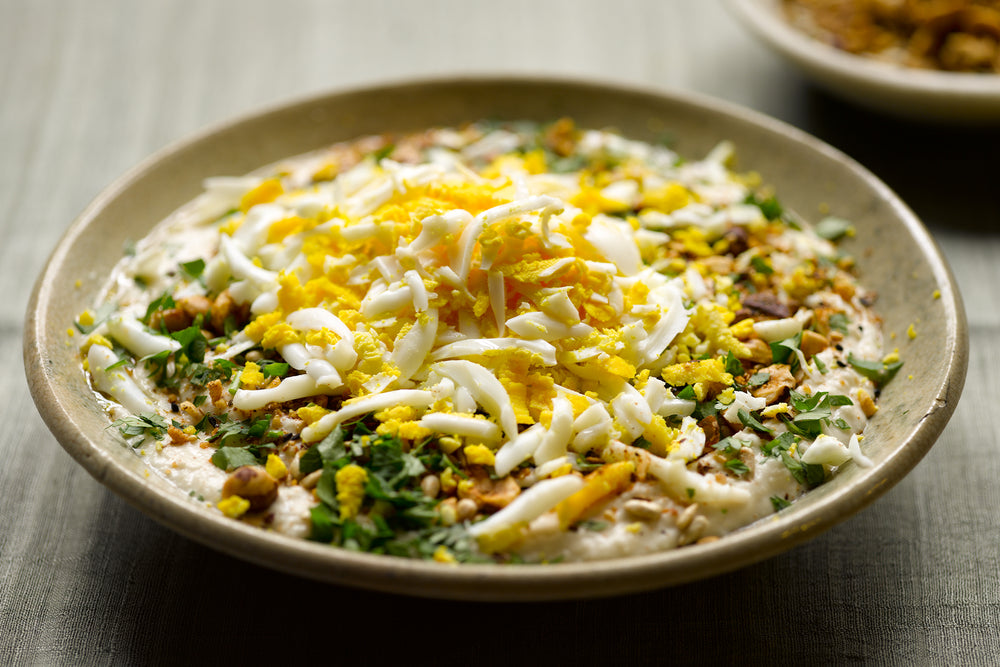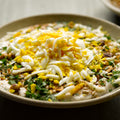Popular searches
Main menu
recipes menu
recipes
locations menu
locations
shop menu
shop
search
Popular searches

There are two beautiful recipes here. You could just make the butter bean purée and keep it in the fridge for up to a week – it's a handy sandwich spread. Or you could also prepare just the dukkah, an Egyptian condiment that will easily keep for a month in an airtight container and can be used to sprinkle over salads, rice and almost anything else. We would make both, though: they're best when put together. The spice and crunch of the dukkah give the purée heaps of character.
| 250g | dried butter beans, soaked overnight in plenty of cold water with ½ tbsp bicarbonate of soda |
| 4 | garlic cloves, crushed |
| 2½ tbsp | lemon juice |
| 120ml | olive oil |
| fine sea salt and black pepper | |
| 10g | parsley, roughly chopped |
| 2 | free-range eggs, hard-boiled and peeled |
| 70g | hazelnuts, with their skins |
| 2 tbsp | sunflower seeds |
| 1 tsp | fennel seeds |
| 1 tbsp | cumin seeds |
| 1 tbsp | dry green peppercorns (or white, as an alternative) |
| 3 tbsp | coriander seeds |
| 1½ tbsp | sesame seeds |
| ½ tsp | nigella seeds |
| ½ tsp | flaky sea salt |
| 1 tsp | paprika |


Tag @ottolenghi on Instagram and hashtag it #ottolenghi so we can see all the deliciousness!
Follow @Ottolenghi on Instagram and tag your images with #Ottolenghicookoftheweek
Be the first to add a cooking note